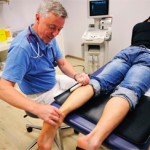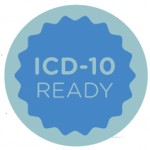NEW YORK (Reuters Health)—Certain rheumatoid arthritis (RA) patients doing well on etanercept and methotrexate may be able to quit the latter agent if they have tolerability problems, according to an open-label Canadian study. In a Sept. 11 online paper in Rheumatology, Dr. Boulos Haraoui, of the University of Montreal, and colleagues noted that although combination…

POP1-Based Treatments May Reduce Inflammation
A recent study analyzed inflammasome response, finding the POP1 PYRIN domain protein acts to decrease excessive inflammatory responses and prevent systemic inflammation. Researchers ultimately developed a drug based on POP1 and found it reduced inflammation in mice…
Depression & Anxiety Linked to Poor Rheumatoid Arthritis Outcomes
NEW YORK (Reuters Health)—Rheumatoid arthritis patients with depression and anxiety symptoms may have worse outcomes and poorer response to prednisolone, a secondary analysis of the CARDERA trial has found. “The strength of association between depression/anxiety and disease activity outcomes and treatment response warrants routine screening,” the study’s lead author Faith Matcham at King’s College London…

Arthritis May Contribute to Poverty
Researchers recommend rheumatologists factor in a patient’s ability to pay when determining treatment, because their study found that an arthritis diagnosis may substantially affect patient finances…
Poverty May Increase Odds of Repeat Hospitalizations
(Reuters Health)—When patients are hospitalized more than once in the same month, it may have more to do with their income or education levels than the quality of care they received, a U.S. study suggests. Perhaps unsurprisingly, patients 85 and older are more likely to return to the hospital within 30 days of being sent…

New Labeling for Infused Golimumab; Phase 3 Trial for Romosozumab Promising
The FDA has approved new labeling for infused golimumab to include measures of mental and physical health. Plus romosozumab meets primary endpoints in postmenopausal women with osteoporosis during a Phase 3 trial…

Systemic Lupus Erythematosus Without Kidney Involvement: A Case Report
A 35-year-old female with a history of systemic lupus erythematosus (SLE) without kidney involvement was admitted to our hospital with low-grade fevers, headache, increasing lower extremity edema and elevated blood pressure. History She was first diagnosed with SLE as a teenager when she developed oral ulcers and pleuritic chest pain and tested positive for anti-Smith…

Connective Tissue Disorders Lack Societal Concern, Financial Support
“Love is the bone and sinew of my curse.” —Sylvia Plath Cutting the Cord Here’s the problem: No one grows up wanting to seek the cure for bursitis—or tendonitis or just about any of the other seemingly mundane maladies afflicting our body’s scaffolding. Meniscal tears, fasciitis, tendinopathies—the list is endless. Chances are, your college essay…

Preparing for the Transition to ICD-10
The transition to ICD-10 is not just another yearly diagnosis codes update; it is a complete overhaul. This not only will affect providers, but also all payers, vendors and stakeholders are being affected by the expanded ICD-10 code sets through medical coding operations, software systems, reporting, administration, registration and more. With approximately 20 days before…

Rheumatologists on the Move, September 2015
Teresa Fama: Rheumatologist to Chair Public Advisory Council Teresa Fama, MD, is the new chair of the New England Comparative Effectiveness Public Advisory Council (CEPAC). A rheumatologist who practices in Berlin, Vt., Dr. Fama has previous experience in public policy, specifically health policy. Before she began her second career as a physician, Dr. Fama was…
- « Previous Page
- 1
- …
- 560
- 561
- 562
- 563
- 564
- …
- 819
- Next Page »